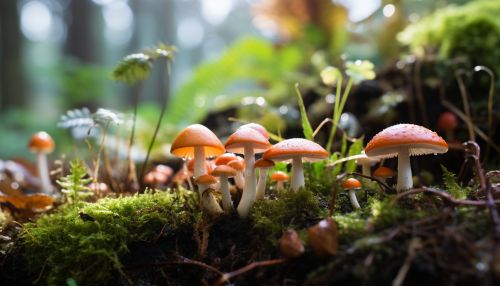Mycobiome
Introduction
The mycobiome, also known as the fungal microbiome, refers to the community of fungi that inhabit various environments, including the human body. These fungal communities play a significant role in health and disease, influencing host immunity, metabolism, and even behavior. The mycobiome is an integral part of the larger microbiota, which also includes bacteria, viruses, and other microorganisms.
Composition and Diversity
The mycobiome is composed of a diverse array of fungal species. The exact composition varies depending on the environment, with different species dominating in soil, water, and host-associated environments. In humans, the mycobiome is predominantly composed of yeasts, such as Candida species, and molds, such as Aspergillus species. However, the composition can change in response to factors such as diet, antibiotic use, and disease state.


Role in Health and Disease
The mycobiome plays a crucial role in maintaining health by contributing to immune function, nutrient absorption, and the maintenance of a balanced microbial community. However, disruptions to the mycobiome, known as dysbiosis, can contribute to a variety of diseases. For example, overgrowth of Candida species can lead to oral and vaginal thrush, while an overabundance of Aspergillus can cause lung infections in immunocompromised individuals. The mycobiome has also been implicated in chronic diseases such as inflammatory bowel disease, allergies, and even mental health disorders.
Interaction with the Immune System
The mycobiome interacts with the host immune system in complex ways. Some fungal species can trigger an immune response, leading to inflammation and tissue damage. However, other species can modulate the immune response, promoting tolerance and preventing excessive inflammation. This delicate balance between immune activation and tolerance is crucial for maintaining health and preventing disease.
Factors Influencing the Mycobiome
Various factors can influence the composition and function of the mycobiome. These include diet, antibiotic use, age, and health status. For example, a diet high in sugars can promote the growth of Candida species, while antibiotic use can disrupt the balance of fungal species, leading to dysbiosis. Age and health status can also influence the mycobiome, with changes observed in elderly individuals and those with chronic diseases.
Future Directions
Research into the mycobiome is a rapidly growing field, with potential implications for disease prevention and treatment. Future research will likely focus on understanding the complex interactions between the mycobiome and the host, as well as developing strategies to manipulate the mycobiome for therapeutic benefit.
